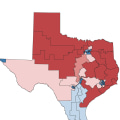As an expert in political campaigns, I have witnessed the rise of negative campaigning in Southeast Texas. It has become a common tactic for candidates to attack their opponents rather than focusing on their own platforms and policies. But what is the true impact of this type of campaigning on candidate campaigns in Southeast Texas?
The Rise of Negative Campaigning
Negative campaigning, also known as attack ads or mudslinging, has been used for centuries. However, with the rise of social media and 24-hour news cycles, it has become more prevalent in recent years.Candidates have found that negative ads can be effective in swaying public opinion. In Southeast Texas, negative campaigning has become a staple in local, state, and national elections. Both major parties have used attack ads to discredit their opponents and gain an advantage in the polls. But what are the consequences of this type of campaigning?
The Impact on Voter Turnout
One of the most significant impacts of negative campaigning is its effect on voter turnout. When candidates focus on attacking their opponents rather than discussing their own policies and plans, it can lead to voter apathy.Many voters become disillusioned with the political process and choose not to vote at all. In Southeast Texas, where voter turnout is already low compared to other regions, negative campaigning can further discourage people from going to the polls. This can have a significant impact on the outcome of an election, as candidates may win or lose by a small margin.
The Effect on Public Perception
Negative campaigning can also have a lasting effect on how the public perceives candidates. When attack ads are constantly bombarding voters, it can create a negative image of the candidates involved. This can lead to a lack of trust in the political system and the candidates themselves. In Southeast Texas, where many communities are close-knit and rely on personal connections, negative campaigning can be particularly damaging.Voters may feel that the candidates are more interested in tearing each other down than actually serving their constituents.
The Cost of Negative Campaigning
Negative campaigning is not only damaging to the political process, but it also comes at a high cost. Candidates spend millions of dollars on attack ads, taking away resources that could be used for more productive purposes, such as promoting their own policies or engaging with voters. In Southeast Texas, where many communities are still recovering from natural disasters and economic downturns, this money could be better spent on addressing pressing issues and improving the lives of residents.The Role of Social Media
Social media has become a powerful tool for political campaigns, but it has also made negative campaigning more prevalent. With the ability to reach a large audience quickly and at a low cost, candidates can easily spread attack ads and misinformation about their opponents. In Southeast Texas, where social media is widely used by residents, negative campaigning on these platforms can have a significant impact on public opinion. It is essential for voters to fact-check information they see on social media and not rely solely on what they see in attack ads.The Importance of Focusing on Policies
While negative campaigning may be effective in swaying public opinion, it ultimately does a disservice to voters.Instead of focusing on the issues that matter to Southeast Texans, candidates spend their time attacking each other. This takes away from important discussions about policies and solutions to problems facing the region. It is crucial for candidates to focus on their own platforms and policies rather than attacking their opponents. This allows voters to make informed decisions based on the issues that matter to them, rather than being swayed by negative ads.
The Need for Change
Negative campaigning has become a vicious cycle in politics, with candidates feeling the need to attack their opponents to gain an advantage. However, this type of campaigning only serves to further divide communities and damage the political process. In Southeast Texas, where unity and resilience are essential values, it is time for a change.Voters must demand that candidates focus on the issues that matter and refrain from resorting to negative tactics.






